
🕑 | 13-minute read
Capital Raisings
New Zealand Shareholders’ Association (NZSA) advocates strongly for the fair treatment of all retail investors (both large and small) in any capital raising, even where challenging circumstances exist. Our clear preference is for capital raisings to take the form of a pro-rata renounceable share offer.
Where this is not possible, placements with associated share purchase plans which are of a sufficient size to prevent dilution of retail shareholders should be considered.
This article reviews the 11 of the major capital raisings that have been carried out by both New Zealand’s Exchange (NZX) and Australian Securities Exchange (ASX) companies, under the respective exchanges’ new rules, over the past three weeks.
All eleven raisings included a placement; eight included a pro-rata entitlement offer and five incorporated a share purchase plan (SPP). One raising (Reece) included all three elements.
The institutional part of an accelerated entitlement offer can generally be managed in the same time frame as a placement. The retail part of the entitlement offer, or the SPP, are then scheduled to complete over approximately two weeks.
Of the eleven companies raising capital:
- Auckland Airport, Webjet and Flight Centre are in the travel/tourism sector
- Kathmandu is a retailer
- Ooh!Media and Southern Cross Austereo are reliant on advertising
- G8 Education provides pre-school childcare
- and IDP Education operates international educational businesses
Each of these sectors is in the front line of the Covid-19 related lockdowns.
The other three companies carrying out capital raisings were:
- Reece – plumbing supplies retailing and distribution
- Cochlear – healthcare
- and Next DC – data centres
The capital raisings carried out by Webjet, Flight Centre, Kathmandu, Ooh!Media, Southern Cross Austereo and G8 Education involved issuing large numbers of shares relative to the original numbers of shares on issue.
The new shares were issued at deep discounts. These issues could be described as “rescue” raisings.
Shareholders who were unable to participate, either fully or at all, are particularly heavily diluted in rescue raisings.
This comes about through a combination of the significantly lower trading price that has resulted from the crisis, the discount to recent trading price that the new shares are issued at and the high percentage of new shares typically issued relative to the original share base.
Putting aside those with a “rescue” element, the raisings for Cochlear and NextDC were the most controversial.
Cochlear was criticised for the pricing and structure of the offer and NextDC was accused of taking advantage of the changed capital raising rules when it wasn’t necessary to do so. For more detail on these matters, see the notes accompanying the background to each company’s raising.
The price of underwriting the retail component of an entitlement offer may not be cheap, with a two-week timeframe necessary, but NZSA believes that this is money well spent if it protects the interests of smaller shareholders.
Structuring the offers so that retail shareholders can participate and are left with the minimum level of dilution is critical.
It is notable that none of the pro-rata entitlement offers covered in this review provided for rights trading. NZSA encourages companies to offer renounceable rights to shareholders as this allows those who are unable to participate the opportunity to still capture some value.
In an article that appeared in the AFR on 24th March 2020, Dean Paatsch, the principal of proxy advisor Ownership Matters was quoted, in relation to raisings carried out during the GFC:
“… placements were cheapest in terms of underwriting fees at 1.74 per cent, reflecting the time underwriters were on risk, ahead of non-renounceable rights issue (2.32 per cent) and renounceable deals (2.4 per cent).
However, accelerated time frames for entitlement offers had been reduced in the years since, which should reduce the underwriter’s risk and asking price.”
Regarding placements, aside from retail investor dilution, past market experience suggests that placements don’t necessarily work well for all institutional investors either.
Problems can arise when investment banks managing the raising, favour their clients and associates rather than existing holders. In many raisings, investment banks have this discretion.

Interestingly, in some of the raisings outlined below, founders or existing large shareholders chose to accept heavily dilution. This was presumably because they either didn’t have the means or the desire to take up their full entitlement.
This was the case for the three original founders of Flight Centre; Auckland Council with Auckland Airport; the Wilson family with Reece and Briscoe Group with Kathmandu.
Auckland Airport offered a mechanism for downside price protection for retail shareholders participating in the SPP, as is now permitted under NZX rules.
The price of the SPP shares will be the lower of the issue price for the placement shares or a 2.5% discount to the volume weighted average price of shares traded over the last five days of the VWAP of the shares over the last few days of SPP application period.
This is a positive move to look after the interests of retail shareholders and NZSA encourages others to adopt this approach, particularly if market trading continues to be highly volatile.
Often placements are dilutionary to retail shareholders but, the company raisings outlined below, indicate that there are methods that can be used to minimise or eliminate dilution. These include:
- offering an entitlement offer that makes up most of the raising.
- offering an SPP to retail investors that has a total value, relative to the overall raising, that aligns with the percentage of the original equity held by retail shareholders and other likely participants who were not offered shares in the placement. If the SPP is oversubscribed, applications should be scaled back in accordance to each applicant’s initial holding. (Auckland Airport)
- where both a placement and an entitlement offer are used, providing retail shareholders with the opportunity to apply for additional shares above their entitlement. (Webjet and G8 Education)
- where an institutional placement and a pro rata entitlement offer are made, an SPP can also be offered to provide retail shareholders with the opportunity to reduce the dilutionary impact of the placement. (Reece)
Analysis of recent Capital Raisings that have Incorporated a Pro-rata Entitlement Offer
1. Kathmandu (NZX:KMD)

A fully underwritten $207 million equity raising at an offer price of $NZ 0.50 per share. The application price was a 51% discount to last trading price of $NZ 1.02 and a 30.2% discount to the theoretical ex-rights price (TERP) of $NZ 0.72
The raising was made up of a $NZ 30 million placement and a $NZ 177 million 1.2 for 1 pro-rata entitlement issue. The accelerated institutional entitlement component was followed by a retail pro-rata entitlement offer that takes place over approx. 2 weeks.
Following the raising, the number of shares on issue will more than double.
While the placement size appears modest, given the heavily discounted price, the number of placement shares to be issued was still equivalent to 20% of the existing shares on issue before the offer.
In terms of the impact on retail shareholders, it is fortunate that most of the raising occurs by way of an entitlement offer of 1.2 shares for every 1 share held. This assumes of course that retail shareholders have the capacity to participate in the offer as rights are not tradeable.
2. Webjet (ASX:WEB)
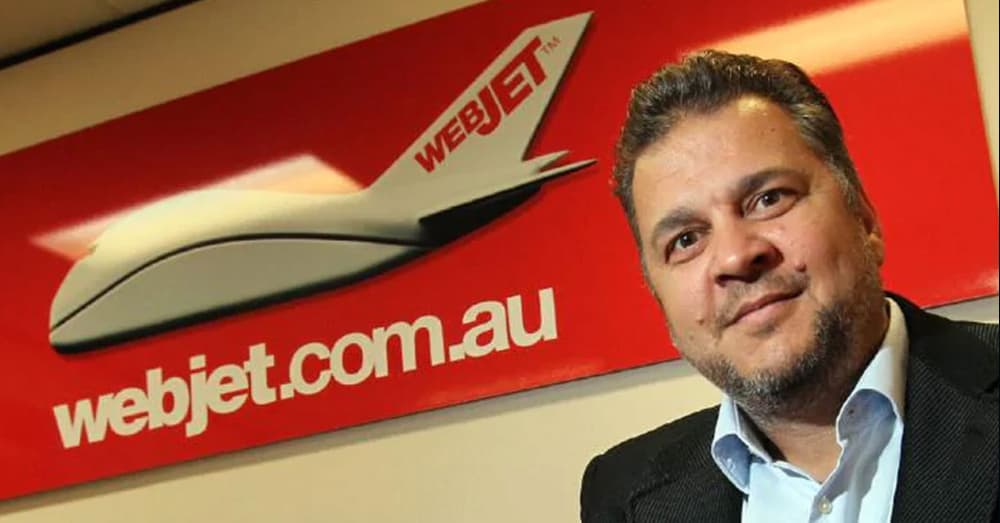
A heavily discounted, fully underwritten $A275m equity raising at an offer price of $A1.70 (a 32% discount to TERP).
This included a fully underwritten institutional placement to raise $A101 million and a partly underwritten 1:1 entitlement offer to raise a minimum of $A174 million and a maximum of $A231 million.
Retail shareholders who apply for their entitlement in full, can apply for additional shares up to 100% of their entitlement. The retail component of the offer takes place over two weeks.
Given that the raising incorporated an entitlement offer and the option of retail shareholders applying for additional shares, retail shareholders would not have been meaningfully disadvantaged by the placement.
This assumes of course that retail shareholders have the capacity to participate in the offer.
3. Flight Centre (ASX: FLT)
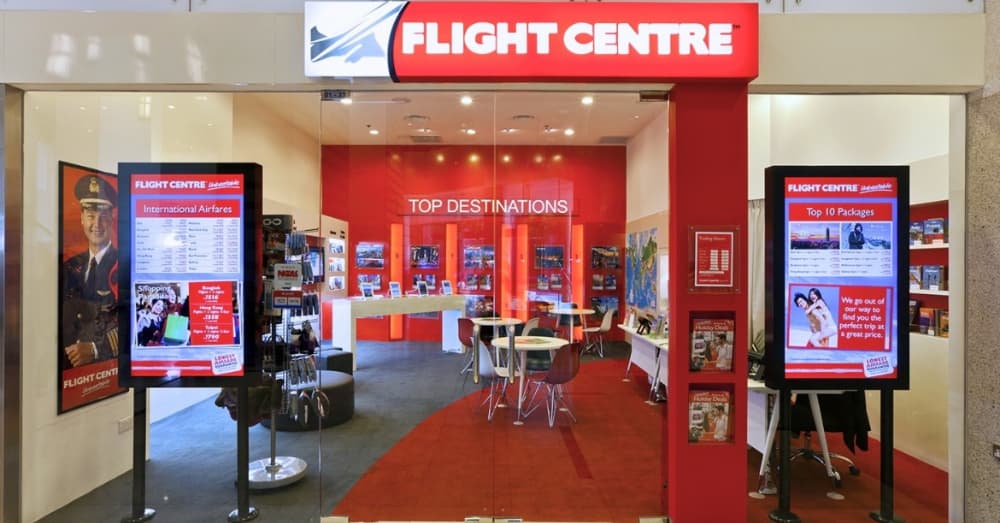
A heavily discounted, fully underwritten $A 700m equity raising at an offer price of $A 7.20 (27.3% discount to the last traded price of $A 9.91 on 19 March 2020 and a 16.1% discount to TERP of $A8.582).
The raising includes a $A 282m institutional placement and a $A 419m pro-rata 1 for 1.74 entitlement offer (institutional component to raise $A 280m and the retail component to raise $A 138m). The retail component of the offer takes place over two weeks.
The discounted placement represented 40% of the shares on issue prior to the raising. Though retail shareholders have been diluted, it is at least fortunate that the offer also includes a significant entitlement offer. There is no provision for rights trading.
4. Ooh!Media Ltd (ASX:OML)
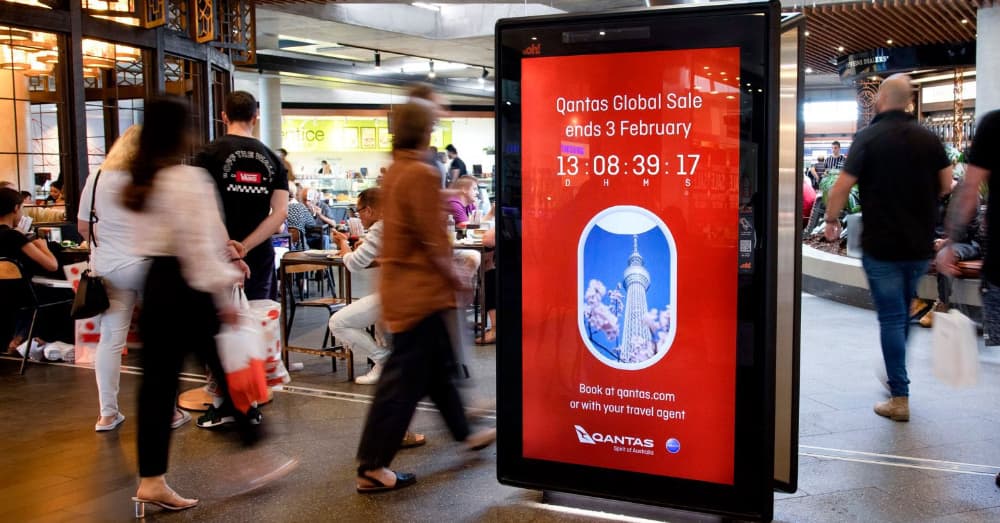
A heavily discounted, fully underwritten equity raising of $A 167m at $A 0.53 per share (37% discount to the closing price of $A 0.84 on 19th March and a 20% discount to TERP of $A 0.66).
The raising included a $A39m placement and an accelerated non-renounceable pro-rata entitlement offer of 1 share for every 1 share held to raise $A 128m. The retail component of the offer takes place over two weeks.
The heavily discounted issue price meant that the dilutionary impact of the placement was significant despite the placement represented less than 25% of the full raising. Retail shareholders who are unable or unwilling to take up their rights will be heavily diluted.
5. Southern Cross Austereo (ASX:SXL)
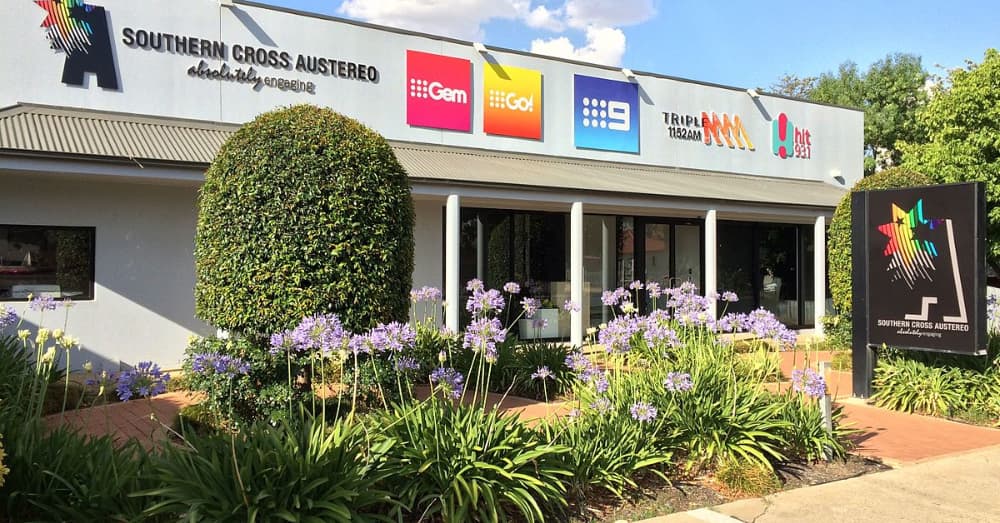
A heavily discounted, fully underwritten equity raising of $A169m at $A 0.09 per share (45.5% discount to the last traded price of $A 0.165 on 23 March 2020 and a 19.5% discount to the TERP of $A 0.112).
The raising included a placement of $A47m and an entitlement offer of $A122m at a ratio of 1.75 shares for every 1 share held. The institutional component of the entitlement offer is for $A103m and the retail component $A18m. The retail offer takes place over two weeks.
Given the heavily discounted offer price and the fact that the placement made up 28% of the raising, the dilutionary impact is significant.
6. G8 Education (ASX:GEM)

A heavily discounted, fully underwritten equity raising of $A 301m comprising an institutional placement of $134 million; and a 1 for 2.2 pro-rata accelerated non-renounceable entitlement offer of approximately $A167 million.
The entitlement offer is made up of an institutional component of approximately $A89 million and a retail component of approximately $A 79 million.
The offer price is $A0.80 per share which is a 25.9% discount to the last traded price of $A1.08 on 2 April 2020 and a 16.1% discount to TERP of $A0.95. Retail shareholders who take up their entitlement can apply for additional shares up to 25% of their entitlement.
The dilution of the holdings of retail shareholder is only partially offset by the inclusion of the option to purchase additional shares.
7. Reece (ASX:REH)
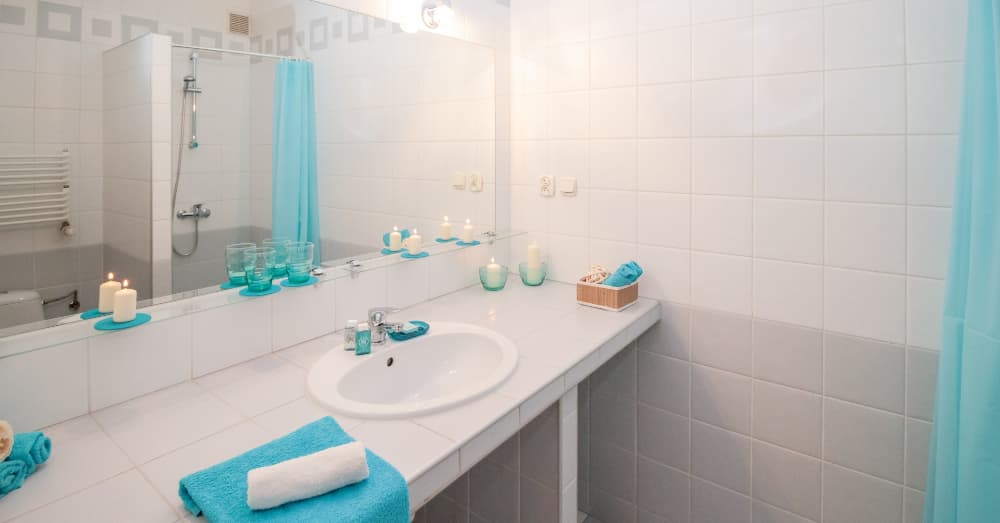
A fully underwritten equity raising for $A600m comprising a fully underwritten $A232 million accelerated pro-rata non-renounceable entitlement offer; a fully underwritten $A368 million institutional placement and a non-underwritten Share Purchase Plan (each retail shareholder can apply for up to $A 30,000 under the SPP and applications will be met in full).
Note equity raised through the SPP is not included in the $A 600m headline raising amount. The new shares are to be issued at $A 7.60 per share which is a 12.5% discount to the last traded price of A$ 8.69 on Friday, 3 April 2020 and a 11.2% discount to TERP of A $8.56.
The entitlement offer and placement will result in approximately 79 million new shares being issued, representing approximately 14.1% of Reece’s existing issued capital.
The SPP was included in the offer to provide retail shareholders with an opportunity to minimise their level of dilution. The SPP has not yet concluded.
This raising was carried out at a lower discount to many of the others. Retail shareholders were given the opportunity to participate in an entitlement offer and an SPP.
The SPP was offered as a mechanism for retail shareholders to address the dilution that would have resulted from the placement component of the offer.
Recent Capital Raisings that Comprised a Placement and a Share Purchase Plan (SPP)
1. Auckland Airport

The raising consists of a placement to raise $NZ 1,000m that through the book build was priced at $NZ 4.66 representing a discount of around 8% to the last close price on 3 April 2020 and a discount of approx. 10% to the 5-day VWAP prior to the raising announcement.
The 214m shares issued in the placement represents 17.7% of existing shares before the offer. The raising also includes a SPP enabling investors to subscribe for up to $NZ 50,000 of shares with a capped SPP amount of $NZ 200 million.
The price of the SPP shares is set at the lower of the placement share price or a 2.5% discount to the five-day volume weighted average price of Auckland Airport shares traded on the NZX during the last five days of the SPP offer period.
If the SPP is oversubscribed, applications will be scaled in a way that reflects the holders initial holding on the record date.
Auckland Airport states that the SPP will cater for a “high” majority of Auckland Airport’s non-institutional shareholders, enabling them to participate and potentially (depending on how many others apply) increase their relative percentage holdings in Auckland Airport.The SPP has not yet concluded.
The “Distribution of Ordinary Shares and Shareholders” data presented in the 2019 Auckland Airport annual report (page 95 of the financial statements document) provides information that allows estimation of the percentage of the company held by retail investors.
For this exercise, it was assumed that retail shareholders owned between 1 and 100,000 AIA shares. Holders of shares in this range accounted for 212m shares which is equivalent to 17.5% of the issued capital. The SPP is capped at $200m which is equivalent to 16.7% of the raising.
Given that AIA has indicated that, if there are applications in excess of $200m, these will be scaled to reflect existing holdings, it is possible that retail shareholders will not be significantly disadvantaged or diluted.
However, it is unclear how many other non-institutional participants there may be, who are eligible to participate but are not captured in the number of shareholders recorded as holding less than 100,000 shares.
Had a clause allowing Auckland Airport to vary the size of the SPP raising been included in the documentation, there would have been flexibility to ensure that retail shareholder applicants were not diluted.
2. NextDC

The raising comprises a fully underwritten institutional placement to raise approximately $A672m and a SPP for retail shareholders to subscribe for up to $A 30,000 of new shares each under a non-underwritten, uncapped SPP.
The placement was priced at $A 7.80 per share which represents a 9.4% discount to 5-day VWAP2 and 15.0% discount to the last close. The SPP issue price is the lower of the placement price or the 5-day VWAP up to and including the SPP closing date. The SPP has not yet concluded.
This was not an urgent raising as the data centre business of NextDC has not suffered as a result of the pandemic. Given the non-urgent nature of this raising, the company was criticised for taking advantage of the recent change in equity raising rules rather than running an entitlement offer.
The placement was for 20% of the number of existing shares on issue. The uncapped SPP raising would have ensured that, with a subscription limit of $A30,000, most retail shareholders (though not all) could avoid dilution, provided they have funds to participate in the offer.
3. Cochlear

The raising consisted of a fully underwritten $A 800m institutional placement and a non-underwritten SPP to raise up to $A 50m. Cochlear retains the right to accept applications that result in the SPP raising more or less than this amount at its discretion.
The Placement was issued at $A 140 per share which represented a 16.7% discount to the last closing price of A$168 on Tuesday, 24 March 2020.
The placement resulted in 5.7 million new shares being issued, representing approximately 9.9% of Cochlear’s existing issued capital. The SPP has not yet concluded.
Cochlear raised additional capital due to the reduction in elective surgeries taking place due to Covid19, which limits short to medium term sales, and the recent court decision requiring COH to pay damages related to a patent action.
Nonetheless, there has been criticism of the raising for not taking the form of an entitlement offer. Given the size of the placement, relative to the SPP, the raising is likely to dilute retail shareholders.
Another criticism that has been levelled at COH is that the offer price was too low given that it was a non-urgent raising. The $A140 issue price was a 16.7% discount to the closing price before the offer and the lowest price that the shares have traded at since April 2017.
Post the raising, the shares have traded as high as $A 199. A further criticism is that 35% of the discounted placement went to one UK investment company, Veritas Asset Management.
On April 6th, John Durie wrote of the COH raising in The Australian “ – “….it is in a different class than say Cochlear, which last week raised money at $140 a share and is now trading at $191.37 after handing one shareholder, Veritas, 5 per cent of the company or 35 per cent of the $880m equity raising.
That deal will go down in history as the day Cochlear and ASX chair Rick Holliday-Smith paid $20m to JPMorgan to bury retail shareholders.”
4. IDP Education (IEL)

The equity raising initially comprised a fully underwritten $A 175m institutional placement and a non-underwritten SPP to raise up to $A 15m. The placement was conducted at $A10.65 per share which was a 7.9% discount to the last traded price of $A 11.56 on Wednesday, 25th March.
The placement was subsequently upsized to $A225m due to high demand. The placement resulted in 21.1m shares being issue that equate to 8.4% of the original issued capital.
Shares issued in the SPP will be priced at the lower of the placement price or a 2% discount to the 5-day VWAP up to the closing date of the SPP. The company may decide, at its discretion, to accept applications in the SPP for more or less than $A 15m. The SPP has not yet concluded.
Given the small size of the SPP, some dilution of retail investors will certainly occur as a result of this raising.
However, the relatively low discount to the previous trading price and the smaller % of new equity being issued will mean that the dilutionary impact will be much less than some of the other raising.
There is a possibility that IEL may accept a higher value of SPP applications given that it has a clause in the documentation that gives it this flexibility.
Source: Martin Watson / NZSA Director / 15th April 2020
P.S. I research and interview economists, tax consultants and property mentors to find tools & tactics that you can use to save money and time.
➔ Join my private newsletter to be the first one to learn insider tips! Here are examples of what you’ll get. It’s FREE. You can unsubscribe at any time. I treat your email as my top secret.